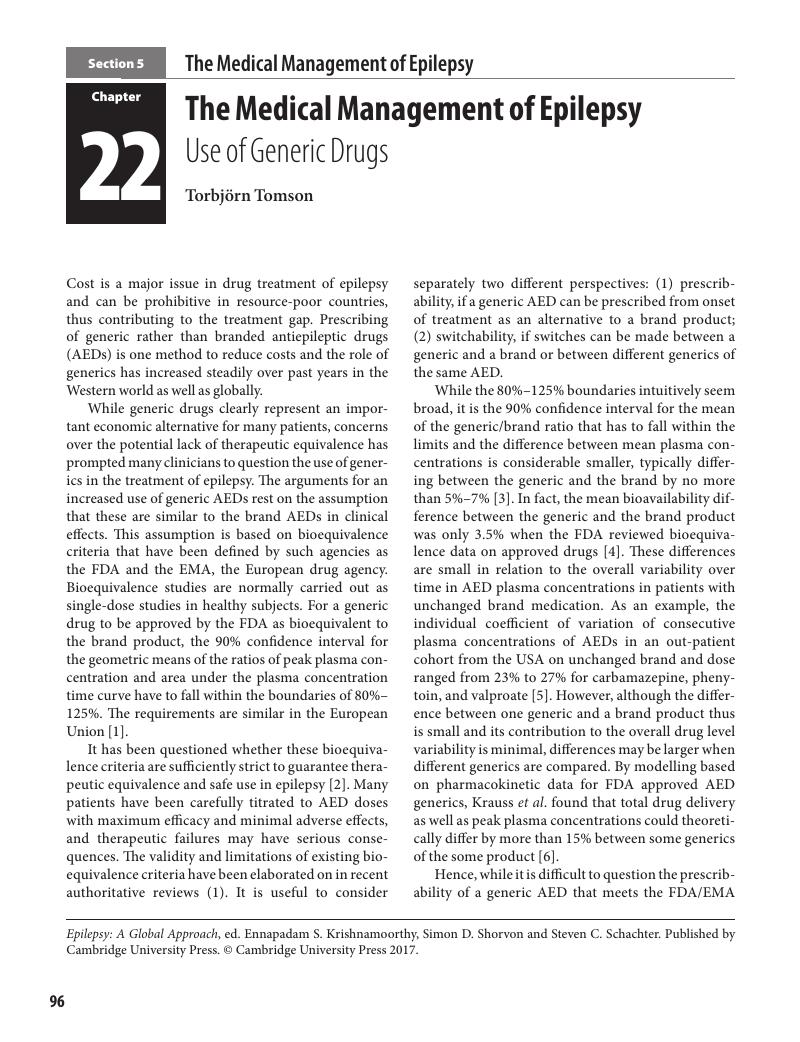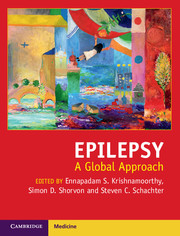Book contents
- EpilepsyA Global Approach
- Epilepsy
- Copyright page
- Dedication
- Contents
- Contributors
- Acknowledgments
- Section 1 Editorial Introduction
- Section 2 Infective Causes of Epilepsy
- Section 3 Consequences of Epilepsy
- Section 4 Comprehensive Epilepsy Care
- Section 5 The Medical Management of Epilepsy
- 20 The Medical Management of Epilepsy
- 21 The Medical Management of Epilepsy
- 22 The Medical Management of Epilepsy
- 23 The Medical Management of Epilepsy
- 24 The Medical Management of Epilepsy in Low- and Middle-Income Countries
- 25 The Challenge of Epilepsy in Low-Income Countries
- 26 Integrated Thought
- Section 6 The Surgical Management of Epilepsy
- Section 7 Non-Pharmacologic Management of Epilepsy
- Section 8 Epilepsy Issues with Global Health Impact
- Section 9 International Perspectives
- Index
- References
22 - The Medical Management of Epilepsy
Use of Generic Drugs
from Section 5 - The Medical Management of Epilepsy
Published online by Cambridge University Press: 13 April 2017
- EpilepsyA Global Approach
- Epilepsy
- Copyright page
- Dedication
- Contents
- Contributors
- Acknowledgments
- Section 1 Editorial Introduction
- Section 2 Infective Causes of Epilepsy
- Section 3 Consequences of Epilepsy
- Section 4 Comprehensive Epilepsy Care
- Section 5 The Medical Management of Epilepsy
- 20 The Medical Management of Epilepsy
- 21 The Medical Management of Epilepsy
- 22 The Medical Management of Epilepsy
- 23 The Medical Management of Epilepsy
- 24 The Medical Management of Epilepsy in Low- and Middle-Income Countries
- 25 The Challenge of Epilepsy in Low-Income Countries
- 26 Integrated Thought
- Section 6 The Surgical Management of Epilepsy
- Section 7 Non-Pharmacologic Management of Epilepsy
- Section 8 Epilepsy Issues with Global Health Impact
- Section 9 International Perspectives
- Index
- References
Summary

- Type
- Chapter
- Information
- EpilepsyA Global Approach, pp. 96 - 98Publisher: Cambridge University PressPrint publication year: 2017



